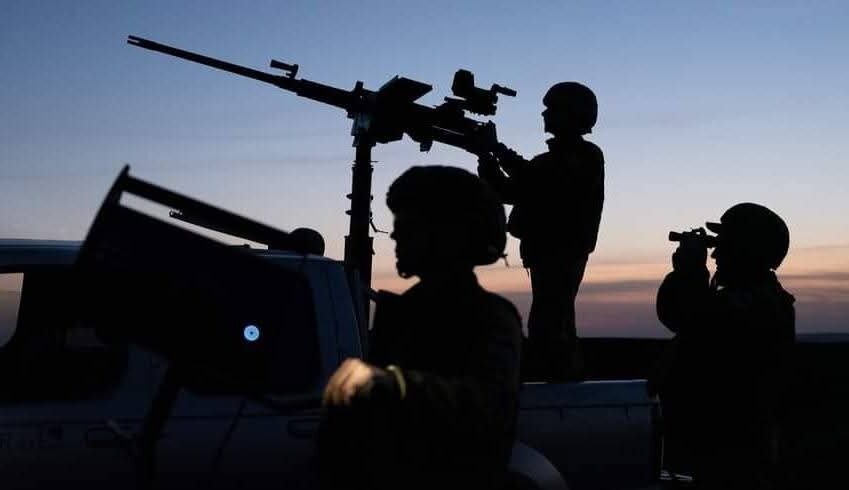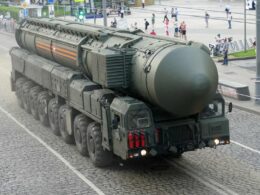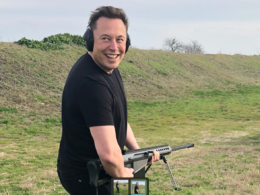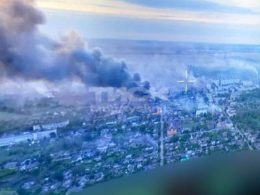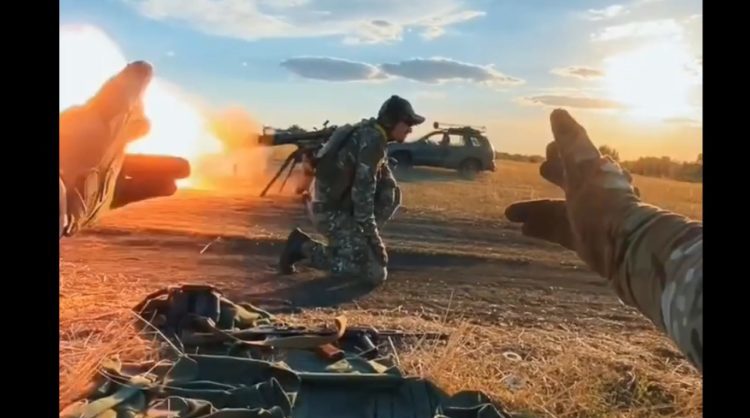“War fatigue” has become one of the most pervasive terms in articles about the Russian-Ukrainian war. It's often used as a catch-all explanation for everything from low mobilization rates to polling results showing declining public belief in a swift end to the war and virtually any Ukrainian setbacks on the battlefield.
Meanwhile, Ukrainian authors use this term far less frequently and for entirely different reasons than might appear at first glance.
Consider one headline example (though such examples are ubiquitous): "Amid growing war fatigue, some Ukrainians are more willing to cede land." Here, we can clearly see that “war fatigue” is portrayed as something that increases over time – starting small and gradually expanding as months pass.
This is precisely where the concept becomes problematic: it implies an absence of fatigue and exhaustion from war at the beginning. This interpretation fundamentally misunderstands the logic of a country that responded to an aggressor state's invasion of its territory with arms.
The concept of war fatigue goes hand in hand with the notion of "war fever." According to this logic, these are two sequential phenomena that replace each other: initially, society is extremely eager to go to war and mobilize, then, upon witnessing the horrors of war, becomes tired of it. This is apparently how many evaluate the processes that occurred in Ukrainian society starting in February 2022, when Russia attacked from the north, south, and east.
Indeed, there were long queues of volunteers across Ukraine wanting to mobilize into the army. Indeed, these queues no longer exist; instead, we see a lack of willingness to mobilize. But did Ukrainian society experience war fever in early 2022? Is it experiencing war fatigue now? Listening to my fellow citizens' stories as a journalist and through daily experience, it becomes evident that both assumptions are merely convenient labels that fail to convey the spectrum of genuine emotions and sensations.
Take Oleksandr, an IT specialist who served from 2014 to 2016. On 24 February 2022, he headed to the Lviv railway station to travel east and rejoin his old unit. Before leaving, he told his wife, "I don't want to go to war." His sentiment echoed nationwide - even those rushing to recruitment offices weren't driven by war fever. Like countless others without prior military experience, they saw no other option.
People who stand up to defend their country don't experience war fever because they have no desire to fight—to attack. The war Ukraine is currently waging is 100% defensive (obviously, the operation in Russia's Kursk is part of this defensive strategy). Thus, in Ukraine's case, war fatigue becomes synonymous with defense fatigue, suggesting that Ukrainians are tired of defending themselves.
But what does "tired" mean? Do they no longer want to defend themselves, or do they objectively lack resources? It seems that when people talk about war fatigue, they hint more at psychological factors rather than real problems – because these real problems and resource challenges that the country faces in the third year of war are barely mentioned in articles emphasizing “fatigue.”
Recent polls tell a different story than the fatigue narrative suggests. Ukrainians' resolve to maintain a strong army, preserve their national identity, and defend their statehood remains firm. Yes, surveys show increased openness to negotiations - but this shift stems from pragmatic assessment rather than psychological exhaustion.
What has truly changed is the question of resources. Resource depletion can and should be discussed quite directly. Naturally, the resources of a country fighting a war against a highly militarized and larger state for three years are diminishing – both material and human.
In my opinion, the real reason for changes in strategic visions, as seen in surveys (such as greater willingness to negotiate), lies precisely in recognizing resource scarcity and the absence of a clear strategy and sensible resource management.
However, writing about resource scarcity would lead many columnists to another question: Where should Ukraine obtain these resources? It's considerably easier to avoid this topic and instead refer to psychological, abstract, intangible war fatigue, which is supposedly the cause of all troubles.
Of course, Ukrainians themselves contributed to this perception. At the war's onset, many communications portrayed Ukrainians as invincible, capable of enduring and overcoming everything through their own strength. This image might have appealed to the world and attracted attention with its extraordinariness, but it isn't realistic. Ukrainians are no more superhuman than any other nation. Perhaps they are slightly more stubborn due to their historical experiences, but this doesn't negate that everything else depends heavily on available resources to fight.
Resource deficits can be addressed through two channels: internal resources and international assistance. Ukraine faces challenges on both fronts - from other countries' hesitation to provide sufficient aid to its own internal struggles with adapting state policies to wartime realities.
For instance, the expenditure of local budget resources on amenities such as park development and landscaping has emerged as a point of considerable controversy.
Such policy oversights, rather than abstract "war fatigue," cause many Ukrainians to feel tired, or rather disoriented. The impact is clear in recent polling: while 50% of Ukrainian men say they would serve if officially summoned, many hesitate to volunteer. The reason? The lack of clear service terms. When will they return home? Under what conditions? These unknowns explain why 82% of Ukrainians, while supporting mobilization, demand it become "more fair and reasonable."
Consider a potential soldier today, facing deployment without knowing their service duration. Is their hesitation really "war fatigue"? This is rather a whole spectrum of quite different feelings, among which the burden of uncertainty plays a role.
By comprehensively asserting that tiredness – or any other negative feelings currently experienced by Ukrainian society – is war fatigue, we hide from real problems and causes that could truly explain what's happening in Ukrainian society. By saying that Ukrainian society is war-fatigued, we seem to hint that all it needs (and what this society will do in the near future) is simply to move away from war and act more "civilized."
The "war fatigue" narrative subtly reinforces a dangerous idea: that this war was somehow avoidable, and that exhaustion will inevitably lead to a better solution.
But perhaps the most revealing use of "war fatigue" appears in a different context entirely: "War fatigue in the West is putting pressure on politicians and diplomats to seek an end to the conflict through negotiations." Consider what this really means - countries not at war claim to be fatigued not by war itself, but merely by its existence elsewhere in Europe.
Is this genuine exhaustion? Or is it something else entirely - a desire to look away from an uncomfortable reality unfolding just hundreds of kilometers from their borders? When Western media speaks of "war fatigue," perhaps what they're really expressing is a hope that Ukraine will eventually tire of defending itself, and peace will somehow materialize on its own.
Read more:
- Now, polls show Ukrainians want peace talks with Russia. But red lines stand
- Ukrainians are now most Trump-positive nation in Europe, poll shows
- Scholz, Trump agree to seek peace in Ukraine in phone call
- Zelenskyy plans to discuss US aid with Trump after inauguration, emphasizes importance of US-EU unity
- Zelenskyy confirms Trump advisor Keith Kellogg to visit Ukraine in early January

